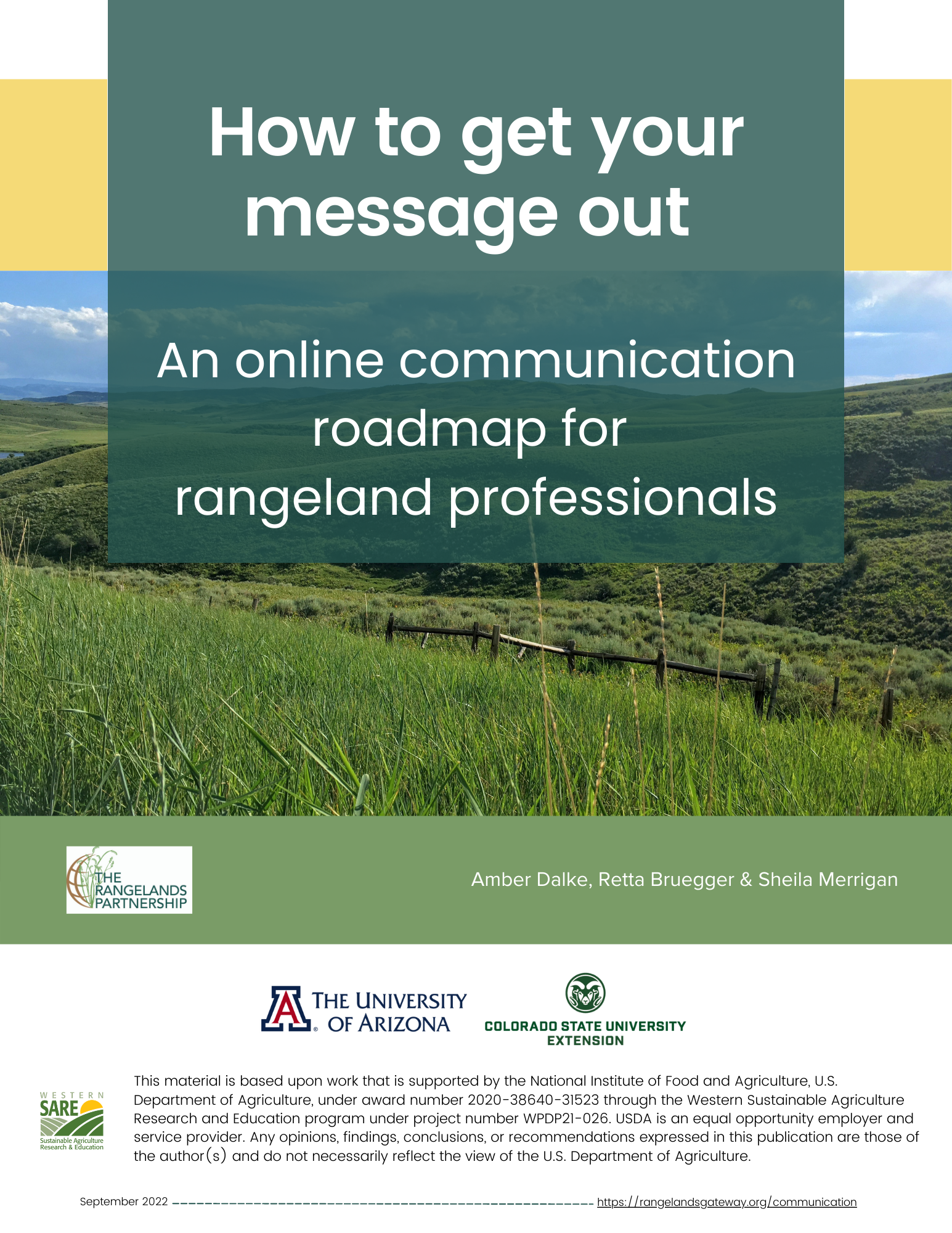By Retta Bruegger
Colorado State University
During one summer several years ago when I was doing a lot of fieldwork, I was at a casual gathering with friends. Someone asked me what I'd been up to, and I answered (in seriousness), "digging a lot of soil pits. It's not as cool as it sounds." My friends responded, "just so you are aware, we don't think that sounds cool."
If you are like me, you got a higher degree in a scientific field with other people also studying the subject matter. This is great, because you need other statistics-soils-plant nerds to get through the army-crawl that is graduate school. But, from a communication standpoint, being around people doing similar work tends to reinforce the misconception, like I had, that it is self-evident that your work is interesting and valuable.
Rangelands professionals can no longer rely (and maybe never could) on the idea that the value of our work is self-evident. We live in an extremely noisy world, where thousands of pieces of information compete for our attention on a daily basis. Putting out information into this circus, without using best practices, just doesn't work.
How can rangelands professionals compete in an exceedingly noisy world? In the same way we would seek out an expert for an incredibly technical question, we would find a professional who specializes in communication and learn from them. In late 2020, based on referrals from others in our field, Amber Dalke and I wrote a WSARE Professional Development Program grant to fund communications professional, Kivi Leroux Miller. Over the last 18 months, Kivi conducted a 12-part training course with members of The Rangelands Partnership. Based on these trainings, we then did a three-part webinar series for broader rangeland and natural resource professionals and wrote a guide summarizing the training.
Working with Kivi has given me tools that make rangeland communication easier and more effective. For example, the importance of knowing your audience and having them reflected in the content. In my first example, my friends would have needed to understand the relevance of soil pits to them, before they could have thought my summer job was cool (Actually, in this example, maybe they were right about soil pits). But you see the point: as rangelands professionals we need to move from "rangelands are important, you should care" to a message centered on the audiences' concerns, with something actionable attached.
Rangelands professionals have good, research-based, and relevant information that our stakeholders need to hear. With improved communication skills and practices, I can envision a world where this information makes its way into the minds of those who want and need it (even if they don't know they need it yet) and helps them make better stewardship decisions. But achieving this vision requires that we have the knowledge and skills to communicate effectively. Are you ready to strengthen your online communication skills? If you missed the trainings, check out our guide and webinars and start using better practices today.
